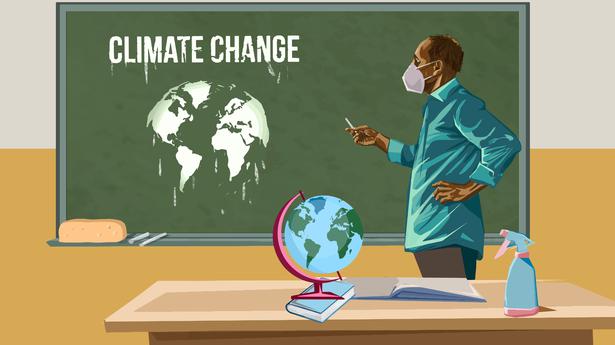
Climate change may increase mortality rate due to excess heat by six times: Lancet study
The Hindu
The study found that the average intensity of hot night events will nearly double by 2090, from 20.4 degrees Celsius to 39.7 degrees Celsius across 28 cities from east Asia
Climate change may increase the mortality rate due to excessive heat six times by the end of the century, according to a modelling study published in The Lancet Planetary Health journal.
Researchers from the University of North Carolina, United States noted that ambient heat during the night may interrupt the normal physiology of sleep.
Less sleep can then lead to immune system damage and a higher risk of cardiovascular disease, chronic illnesses, inflammation and mental health conditions, they said.
The study found that the average intensity of hot night events will nearly double by 2090, from 20.4 degrees Celsius to 39.7 degrees Celsius across 28 cities from east Asia, increasing the burden of disease due to excessive heat that disrupts normal sleep.
The findings show that the burden of mortality could be significantly higher than estimated by average daily temperature increase.
The results suggest that warming from climate change could have a troubling impact, even under restrictions from the Paris Climate Agreement that aims to limit global warming to well below 2 degrees Celsius, compared to pre-industrial levels.
"The risks of increasing temperature at night were frequently neglected," said study co-author Yuqiang Zhang, a climate scientist at the University of North Carolina.

Thomas Jefferson and Abraham Lincoln are two of the greatest presidents that the U.S. has seen. You probably know that already. But did you know that Jefferson made what is considered the first contribution to American vertebrate paleontology? Or that Lincoln is the only U.S. president to receive a patent? What’s more, both their contributions have March 10 in common… 52 years apart. A.S.Ganesh hands you the details…












